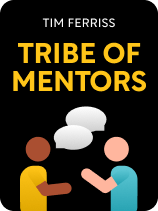

This article is an excerpt from the Shortform book guide to "Tribe of Mentors" by Tim Ferriss. Shortform has the world's best summaries and analyses of books you should be reading.
Like this article? Sign up for a free trial here.
Do you find it hard to say no to requests and opportunities? What if you were more free to pick and choose how you commit yourself?
You’re not limitless. Neither is your time. So, knowing how and when to say no is a highly valuable skill to have. When Tim Ferriss solicited life and career advice from experts in various fields, several of them stressed the importance of establishing and sticking to boundaries in order to protect your priorities.
Read more for insights that will help you know where to draw the line and when to say no.
When to Say No
As you go through life, people put more and more demands on your time. Many of Ferriss’s experts agree that, if you want to devote your life to the priorities you care about the most, you have to aggressively defend your time. In other words, you need to know when to say no. If a request or an opportunity doesn’t align with your priorities, take it as a major signal.
Many of Ferriss’s mentors believe that assessing what you truly care about is the key to spending your time in a fulfilling way. How do you identify what’s most important to you? Pinterest founder Ben Silbermann recommends journaling to clarify your values. Take a break from your urgent daily tasks to reflect on what matters—write down what’s most important for you to do in the next few days, the next few months, and especially in the next several years.
Actress Aisha Tyler acknowledges that it’s difficult to deny people asking you for help; however, every distraction you allow into your life takes you further from your meaningful goals. Chef Samin Nosrat agrees, adding that, the clearer your personal goals are in your mind, the easier you’ll find it to deny people making requests.
| Overly Strict Boundaries Push People Away In Set Boundaries, Find Peace, Nedra Glover Tawwab agrees with Tyler that it’s difficult to set boundaries. She adds that when you’re denying requests on your time, you should avoid setting boundaries that are too strict. People who’ve frequently been taken advantage of often overcompensate by refusing to forgive small impositions or by cutting good people out of their lives. This can disconnect you from loved ones as they come to believe you don’t care about them. For instance, if an aspiring lawyer studying for the bar exam has overly strict boundaries and their significant other asks them to cuddle and watch a movie during their designated study time, they may angrily refuse, creating an emotional rift. How can you avoid this mistake? Tyler and Nosrat suggest focusing on the personal goals you want to accomplish to help you deny the requests of others, but you can use this same strategy to motivate yourself to set more lenient boundaries. If you clarify that maintaining relationships is one of your important personal goals, you’ll be willing to spend some time away from other personal goals without feeling like you’re compromising your needs. |
Counterpoint: Say Yes to Random Opportunities
While entrepreneur Gary Vaynerchuk (Crush It!) acknowledges the importance of saying no to the majority of demands on your time, he also recommends accepting a small number of random opportunities that cross your path, even if they don’t seem remarkable or perfectly align with your personal goals. This measured chaos in your schedule keeps you open to unexpectedly valuable unplanned experiences.
| Act Randomly to Get Unstuck In Algorithms to Live By, Brian Christian and Tom Griffiths further explain why some randomness is necessary to discover the best opportunities in life. Generally, you’ll choose the most promising opportunity that’s available to you at a given time. However, this can cause you to get stuck with an opportunity that’s better than any other opportunities you can see, but far worse than the available options you can’t see. Breaking up your routine and doing something random may be unpleasant at first, but it might help you find new opportunities that you couldn’t see before. For example, you might feel stuck at an unfulfilling job. You feel like you would be even more miserable if you had to hunt for a new job or move to a new city, so you do nothing and stay put. One weekend, you decide to randomly attend the first open community event you see on Facebook—a group litter cleanup at the local park. Eventually, one of the people you met at this event offers you a job running events at the local community center, which you find much more fulfilling than your old job. |

———End of Preview———
Like what you just read? Read the rest of the world's best book summary and analysis of Tim Ferriss's "Tribe of Mentors" at Shortform.
Here's what you'll find in our full Tribe of Mentors summary:
- Distilled life advice from over 130 world-class experts in various fields
- How to navigate non-traditional career paths, appreciate failure, and more
- Why you should allow a small amount of measured chaos in your schedule






